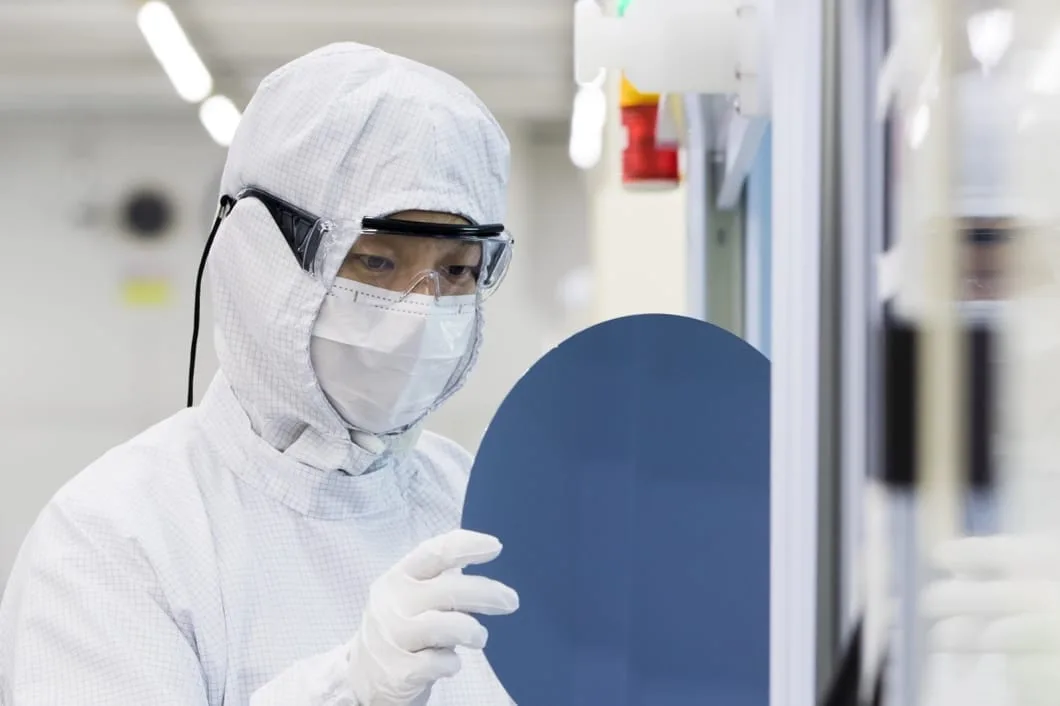Silicon Carbide Epitaxy– High-quality epitaxial layers tailored for advanced semiconductor applications, offering superior performance and reliability for power electronics and optoelectronic devices.
semicera's Silicon Carbide Epitaxy is engineered to meet the rigorous demands of modern semiconductor applications. By utilizing advanced epitaxial growth techniques, we ensure that each silicon carbide layer exhibits exceptional crystalline quality, uniformity, and minimal defect density. These characteristics are crucial for developing high-performance power electronics, where efficiency and thermal management are paramount.
ال Silicon Carbide Epitaxy process at Semicera is optimized to produce epitaxial layers with precise thickness and doping control, ensuring consistent performance across a range of devices. This level of precision is essential for applications in electric vehicles, renewable energy systems, and high-frequency communications, where reliability and efficiency are critical.
Moreover, Semicera’s Silicon Carbide Epitaxy offers enhanced thermal conductivity and higher breakdown voltage, making it the preferred choice for devices that operate under extreme conditions. These properties contribute to longer device lifetimes and improved overall system efficiency, particularly in high-power and high-temperature environments.
Semicera also provides customization options for Silicon Carbide Epitaxy, allowing for tailored solutions that meet specific device requirements. Whether for research or large-scale production, our epitaxial layers are designed to support the next generation of semiconductor innovations, enabling the development of more powerful, efficient, and reliable electronic devices.
By integrating cutting-edge technology and stringent quality control processes, Semicera ensures that our Silicon Carbide Epitaxy products not only meet but exceed industry standards. This commitment to excellence makes our epitaxial layers the ideal foundation for advanced semiconductor applications, paving the way for breakthroughs in power electronics and optoelectronics.
|
أغراض |
إنتاج |
بحث |
دمية |
|
المعلمات البلورية |
|||
|
polytype |
4H |
||
|
خطأ في اتجاه السطح |
4±0.15° |
||
|
المعلمات الكهربائية |
|||
|
Dopant |
نيتروجين من النوع |
||
|
المقاومة |
0.015-0.025OHM · سم |
||
|
المعلمات الميكانيكية |
|||
|
قطر |
150.0 ± 0.2mm |
||
|
سماكة |
350 ± 25 ميكرون |
||
|
الاتجاه المسطح الأولي |
[1-100]±5° |
||
|
طول مسطح أساسي |
47.5 ± 1.5mm |
||
|
شقة ثانوية |
لا أحد |
||
|
TTV |
≤5 ميكرون |
≤10 ميكرون |
≤15 ميكرون |
|
LTV |
≤3 ميكرون (5 ملم*5 ملم) |
≤5 ميكرون (5 ملم*5 ملم) |
≤10 ميكرون (5 ملم*5 ملم) |
|
قَوس |
-15μm ~ 15μm |
-35μm ~ 35μm |
-45μm ~ 45μm |
|
الاعوجاج |
≤35 ميكرون |
≤45 ميكرون |
≤55 ميكرون |
|
الخشونة الأمامية (si-face) (AFM) |
Ra≤0.2nm (5μm*5μm) |
||
|
بناء |
|||
|
كثافة micropipe |
<1 EA/CM2 |
<10 EA/CM2 |
<15 EA/CM2 |
|
الشوائب المعدنية |
≤5E10atoms/cm2 |
نا |
|
|
BPD |
≤1500 EA/CM2 |
≤3000 EA/CM2 |
نا |
|
TSD |
≤500 EA/CM2 |
≤1000 EA/CM2 |
نا |
|
الجودة الأمامية |
|||
|
أمام |
سي |
||
|
الانتهاء من السطح |
Si-Face CMP |
||
|
الجزيئات |
≤60A/WEFR (SIZE 30.3μM) |
نا |
|
|
الخدوش |
≤5ea/مم. الطول التراكمي ≤Diameter |
الطول التراكمي ≤2*القطر |
نا |
|
قشر البرتقال/الحفر/البقع/الدماغ/الشقوق/التلوث |
لا أحد |
نا |
|
|
رقائق الحافة/المسافات البادئة/الكسر/الألواح السداسية |
لا أحد |
||
|
المناطق polytype |
لا أحد |
منطقة تراكمية 20% |
التراكمية منطقة ≤30% |
|
وضع علامة ليزر الأمامية |
لا أحد |
||
|
جودة الظهر |
|||
|
الانتهاء من الظهر |
C-Face CMP |
||
|
الخدوش |
≤5EA/MM ، الطول التراكمي ≤2*القطر |
نا |
|
|
عيوب الظهر (رقائق الحافة/المسافات البادئة) |
لا أحد |
||
|
خشونة الظهر |
Ra≤0.2nm (5μm*5μm) |
||
|
عودة ليزر العلامات |
1 مم (من الحافة العليا) |
||
|
حافة |
|||
|
حافة |
شامفر |
||
|
التغليف |
|||
|
التغليف |
جاهز لـ EPI مع تغليف فراغ عبوات الكاسيت متعددة الفرس |
||
|
*الملاحظات : "NA" تعني عدم وجود عناصر طلب لم يتم ذكرها قد تشير إلى Semi. |
|||

